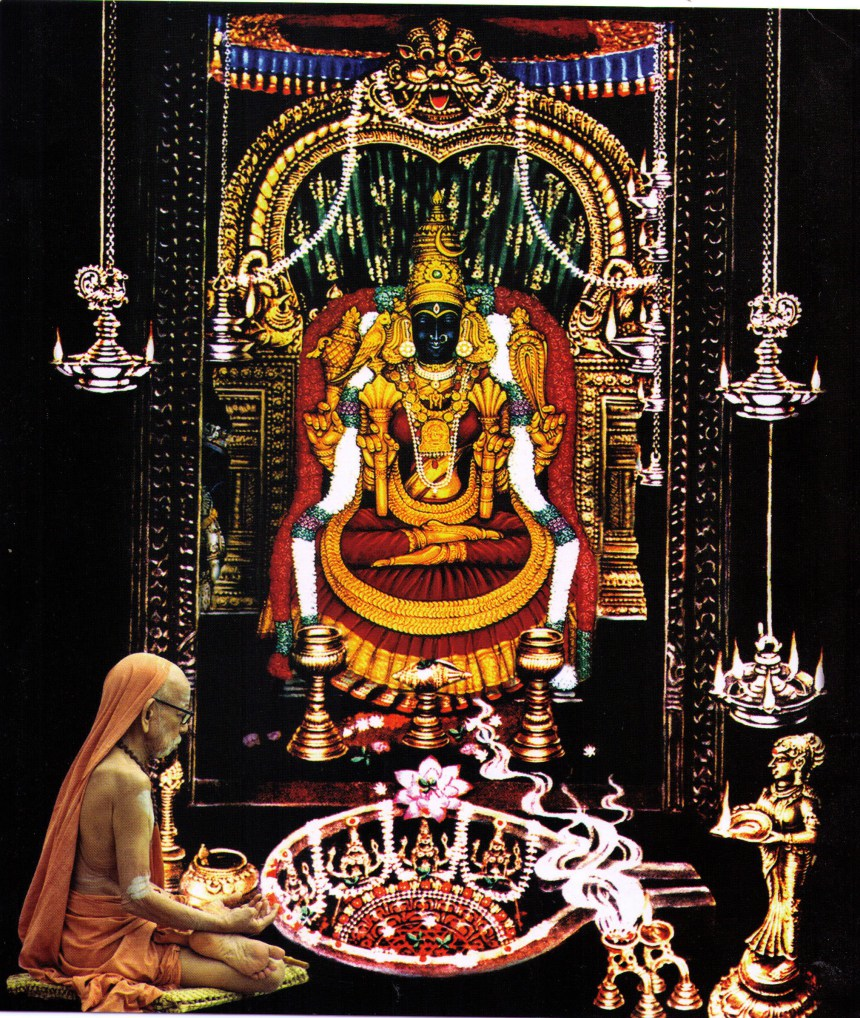In my opinion at no time in our history did Buddhism in the fullest sense of that religion have a large following in India. Today a number of Hindus, who are members of the Theosophical Society, celebrate our festivals like other Hindus and conduct marriages in the Hindu way. There are many devotees of Sri Ramakrsna Parmahamsa practising our traditional customs. Sri C. Ramanujacariyar, "Anna" (Sri N. Subramanya Ayyar) and some others are intimately associated with the Ramakrsna Mission but they still adhere to our traditional beliefs.
When great men make their appearance people are drawn to them for their qualities of compassion and wisdom. In the organisations established after them our sanatana dharma is followed with some changes. But a large number of the devotees of these men still follow the old customs and traditions in their homes.
Many regard Gandhiji as the founder almost of a new religion (Gandhism), and look upon him as one greater than avataras like Rama and Krsna. But in their private lives few of them practise what he preached- for instance, widow marriage, mixing with members of other castes, and so on. People developed esteem for Gandhiji for his personal life of self-sacrifice, truthfulness, devotion and service to mankind. But applying his ideas in actual life was another matter.
It was in the same way that the Buddha had earned wide respect for his lofty character and exemplary personal life. "A prince renounces his wife and child in the prime of his youth to free the world from sorrow": the story of Siddhartha, including such accounts, made an impact on people. They were moved by his compassion, sense of detachment and self-sacrifice. But it did not mean that they were ready to follow his teachings. They admired the Buddha for his personal qualities but they continued to subscribe to the varnasrama system and the ancient way of religious life with its sacrifice and other rites. Contrary to what he wished, people did not come forward in large numbers to become monks but continued to remain householders adhering to Vedic practices.
Emperor Asoka did much to propagate Buddhism; but in society in general the Vedic dharma did not undergo any change. Besides, the emperor himself supported the varnasrama dharma as is evident from his famous edicts. But for the Buddhist bhiksus(monks), all householders followed the Vedic path. Though they were silent on the question of Isvara and other deities, some book written by great Buddhist monks open with hymns to Sarasvati. They also worshipped a number of gods. It is from Tibet that we have obtained many Tantrik works relating to the worship of various deities. If you read the works of Sriharsa, Bilhana and so on in Sanskrit, and Tamil poetical works like that of Ilango Adigal, you will realise that even during times when Buddhism wielded influence in society, Vedic customs and varnasrama were followed by the generality of people.
Reformists today speak in glowing terms about Vyasa, Sankaracarya, Ramanujacarya and others. But they do not accept the customs and traditions I ask people to follow. Some of them, however, come to see me. Is it not because they feel that there is something good about me, because they have personal regard for me, even though they do not accept my ideas? Similarly, great men have been respected in this country for their personal qualities and blameless life notwithstanding the fact they advocated views that differed slightly from the Vedic tradition or were radically opposed to it. Our people any way had long been steeped in the ancient Vedic religion and its firmly established practices and, until the turn of the century, were reluctant to discard the religion of their forefathers and the vocations followed by them. Such was our people's attitude during the time of the Buddha also. When his doctrines came under attack from Udayanacarya and Kumarilabhatta even the few who had first accepted them returned to the Vedic religion.

